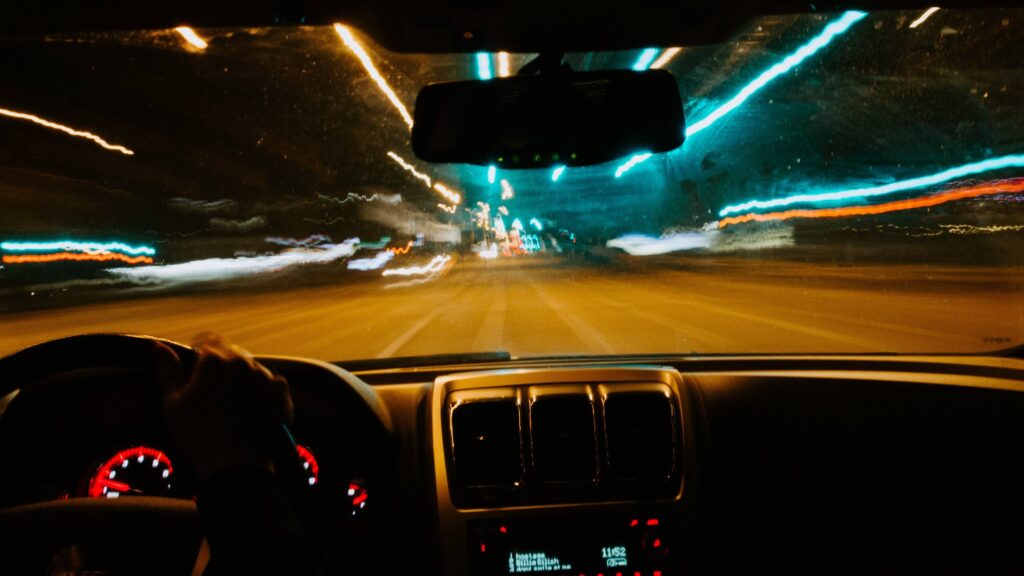
Driving at night on Nigerian roads can feel like an adventure straight out of a thriller. The roads are often dark, potholes lurk like traps, and you might spot a stray goat darting across. Night driving in Nigeria tests your skills, but with working lights, sharp focus, a clean windshield, and a solid plan, you can handle it. We’ve all felt that knot in our stomach on a dark road, but these tips will keep you steady. Drive carefully, stay prepared, and get home safely. Here is a guide to night driving safety on Nigerian roads;
Ensure Your Lights Are Road-Ready
Your car’s lights are your best friends at night, helping you see and ensuring others notice you. On roads like the Lagos-Ibadan Expressway, where streetlights are scarce, faulty headlights can be a disaster. Check your headlights, taillights, and indicators monthly, replacing any dim or burnt-out bulbs. Dust from Nigerian roads can cloud your headlights, so clean the lenses regularly for maximum brightness. I once hit a pothole I couldn’t see because of foggy headlights, and the jolt taught me to keep them sparkling.
Stay Sharp and Boost Visibility
Nigerian roads can be unpredictable, with pedestrians, okadas, or even animals appearing out of nowhere. In busy spots like Oshodi or Onitsha, slow down and scan the road edges for movement. Use high beams on dark rural roads to spot hazards, but dip them for oncoming traffic to avoid blinding others. I’ve learned to watch for sudden shadows goats and people don’t always follow traffic rules. A clean windshield is also key; a dirty or cracked one scatters light, making it harder to see. Clean it inside and out, and replace worn wiper blades for those sudden rains. I once struggled through a downpour in Abuja with bad wipers, and the blurry view was a wake-up call.
Fight Fatigue and Plan Your Route
Long drives, like Lagos to Port Harcourt, can leave you drowsy, dulling your reflexes. If sleepiness hits, pull over at a safe spot like a lit fuel station for a quick nap or some coffee. I’ve pushed through exhaustion before, only to realize I was risking everything. Snacks or music can help, but don’t rely on them alone. Also, plan your route to avoid sketchy areas. Some roads, like certain Niger Delta stretches, are riskier at night due to poor lighting or security issues. Stick to major routes using GPS apps like Google Maps, and tell someone your plans. Keep a charged phone and a power bank handy network issues can strike at the worst moments.
Be Prepared for Emergencies
Breakdowns happen, and at night, they’re scarier. Carry an emergency kit with a flashlight, reflective triangles, and a first-aid kit. I had a flat tire near Abeokuta at midnight once, and my reflective triangles kept speeding trucks from hitting me. Stay inside your car if it’s safe, and call for help immediately.
